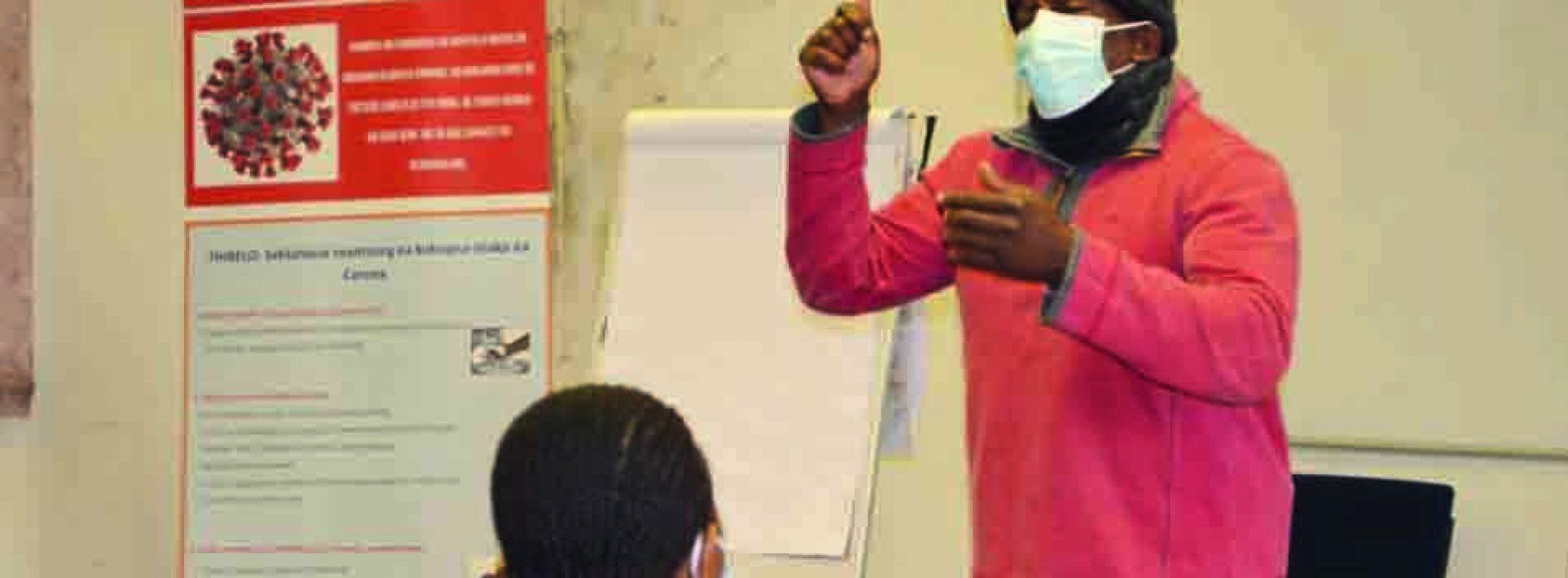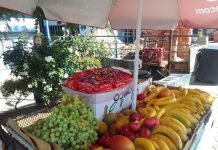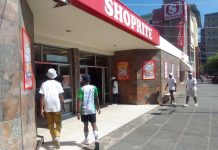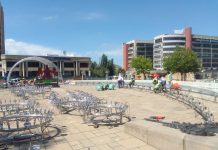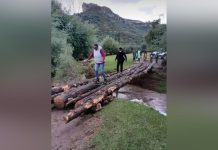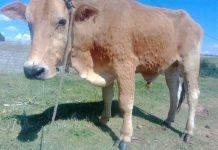Africa-Press – Lesotho. Confusion, lack of information, mistrust and poverty. These are some of the reasons why many Christians in Lesotho are avoiding the jab, at least according to their clerics.
Church leaders say the National Covid-19 Secretariat (Nacosec)’s delay in engaging them in the fight against the pandemic has left them unable to answer congregants’ questions on vaccines.
The clergy said this at a World Health Organisation (WHO) Vax Up, Mask Up, Wash Up Campaign (VMWC) in Thaba-Tseka and Qacha’s Nek last week. They said they have been in a state of confusion in the past 18 months as they did not fully understand Covid-19 or vaccines to give satisfying answers to inquisitive congregants.
The people, the clerics said, have myths about the killer disease and the vaccination which they associate with devil worship. “We do not know how to respond without guidance from health experts.
The majority of our people say they haven’t been vaccinated because of the confusion,” said one cleric. They said the authorities should have first conducted training sessions for them because churches have a large following in Lesotho.
Lesotho Evangelical Church in Southern Africa (LECSA) cleric, Reverend Nyaluoe Thamahane, decried that “being prioritised later shows that we are not considered as important and are taken for granted”.
“We are at risk as we are called every time when there is a problem but we are the last to be remembered when it comes to fighting Covid-19,” Rev Thamahane said, adding that the importance of vaccinations was also not discussed with them so that they pass the information to the congregants.
“If we were capacitated, I believe our congregants and loved ones wouldn’t have succumbed to the virus.
We are victims now,” he said. He accused officials of doing a half-hearted job. “All they want is to report to their donors what they did with the money. Now we are expected to teach people about something that we ourselves do not understand,” he said.
Reverend Moeti Rankhotha, the African Apostolic Church priest at Hillside in Thaba-Tseka, accused authorities of using ineffective top-to-bottom approaches that do not resonate with the people.
“In most villages, water is still a challenge. How are villagers expected to wash hands? Let’s start with the basics if indeed we want to win this fight…water first,” Rev Rankhotha said.
The Assemblies of God’s Back to God Pastor, Maqapalla Letlatsa, said they attend many workshops with different teachings about the same thing. “It’s really confusing.
At this point I am no longer sure what the right way to disinfect or fumigate is. We need accurate information that will help us help others,” Pastor Letlatsa said.
He accused the District Health Management Team (DHMT) for staying in offices and not reaching out to communities to teach about Covid-19. “This causes more delays for Basotho to vaccinate as some are still clueless of vaccination importance,” he said.
Bonang Mapitse, a reverend at LECSA’s Tsooelike parish in Qacha’s Nek, said health education should be universal. “It shouldn’t be done in towns only.
When we need it in the rural areas we are told of the lack of cars,” Reverend Mapitse said. The African Methodist Episcopal Church’s Reverend Ben Tshongweni said there is still a dire need for mask disposal education.
“They are thrown everywhere and are found everywhere in town,” Rev Tshongweni said. He suggested regular meetings between health officials and clerics to update each other on developments.
The Environmental Health Officer in Qacha’s Nek, Matsepe Phatela, encouraged the clerics to maintain physical and environmental hygiene. He advised them to teach people about vaccines circulating countrywide (AstraZeneca and Johnson & Johnson).
“It will be easier to respond to questions and it will help convince congregants about the importance of vaccination bearing in mind that we are still learning about Covid-19,” Phatela said.
Liphapang Mosese, the Christian Council of Lesotho (CCL) Project Manager, said the clerics are influential leaders within their communities but they need accurate information to be effective vaccination campaigners.
“Regardless of what health professionals say, Christians often rely on the priest’s views and if the priest is not capacitated, they wouldn’t have answers for their congregants,” Mosese said.
“A reverend’s words are powerful to God’s flock,” he said.
“Separating science from God will cause problems. Often we have to remind congregations that scientists get wisdom from God,” he said.
Mosese rubbished claims that vaccines are a symbol of a satanic beast described in the Bible book of Revelation meant to wipe mankind off the face of the earth.
He urged religious leaders to compliment efforts by authorities to fight the pandemic. “We have to accept that the fight requires collaboration. Keep on proclaiming things that will rescue Basotho regardless of how long you have been left behind.
God has not left you behind. Although you are not happy, prioritise the congregation of God. This is a golden moment, let’s use it,” said Mosese. The Ministry of Health Education Officer, Letšoara Tšehlo, apologised for the delay in disseminating information to religious leaders.
“We learnt about Covid-19 on the job and research took us longer than expected,” Tšehlo said, stating that the ministry had not deliberately left out the clergy in information dissemination.
“Your opinions about us matter and they will guide us to do better,” he said.
He promised to ask his bosses to involve religious leaders in the Thaba-Tseka District Covid-19 Secretariat (Dicosec)’s activities. “We will encourage each church to be represented,” he said.
Nacosec Risk Communication and Community Manager, Baroane Phenethi, said they realised that Covid-19 is related to social behavior hence the need to disseminate accurate information to minimize confusion and mistrust.
“We wanted to share information on Covid-19 so as to help each other in the dissemination of the correct information. This will help Basotho to make informed decisions at the end of the day,” Phenethi said. “We realised that we can’t fight this alone.
We have to collaborate for us to win,” said Phenithi, adding that authorities need the participation of the clergy to win the fight. He said they acknowledge the delays in approaching church leaders.
“But it’s never too late because people are dying and some people still wear masks only when they see the police”. He said vaccination is not mandatory but it is encouraged for good health.
The WHO Risk Communication and Community Engagement Consultant, Rose Moremoholo, said they understand the mistakes made. “Now we are focusing on rectifying them.
It’s acceptable to correct mistakes and be accountable. It will help us move forward together. It’s never too late,” Moremoholo said. Moremoholo said achieving high uptake of safe and effective vaccines to control the spread of Covid-19 is a public health priority.
“Given the ongoing risk that Covid-19 poses to frontline health workers, people with high risk medical conditions and older adults, there is a need to first support vaccine uptake in those population groups then to expand the introduction more widely.
”
The campaign was piloted in Leribe, Berea and Butha-Buthe in mid-September. Mokhotlong, Thaba-Tseka, Qacha’s Nek were visited last week. The campaign will be taken to Mohale’s Hoek and Quthing next week before it reaches areas such as Maseru and Mafeteng.
The campaign seeks to identify “at risk and vulnerable community groups” and build community engagement through inclusive and locally tailored activities.
Its objectives are to improve the quality and consistency of RCCE approaches, reinforce knowledge, local capacity and solutions as well as strengthen coordination and advocacy.
For More News And Analysis About Lesotho Follow Africa-Press

